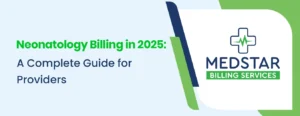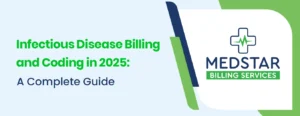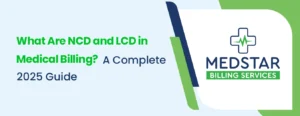Claim denials are the major constraints in the continuous and smooth cash flow of dental practices. Claim denials or rejections occur when the insurance network rejects the claim and does not provide payment to the dental providers for their provided dental care services. This not only increases the frustration of dental care providers but also exerts a major negative impact on the revenue flow. But fortunately, with the help of some top and effective strategies, the claim denials can be minimized to a greater extent.
This article gives a clear insight into the ‘’How to Reduce Dental Claim Denials?. Moreover, this will also uncover the hidden facts that what are the major reasons or factors that can cause the claim denial rejection, and the top actionable steps to prevent them. So let’s start!
Dental Insurance Claim Denials: Common Errors and Their Solutions
Insurance claim denials are considered one of the strongest pain points for dental practices. They put the greater financial strain on the dental practices and cause delays in reimbursements. The acceptance of dental insurance claims is directly linked to the revenue of dental practices. Approximately 50% of your revenue comes from those dental insurance claims that you submit to insurance companies for approval, so you start getting reimbursement on provided dental care services to patients. So their acceptance is highly essential. If multiple claims are continuously getting rejected, then it is an alarming situation that your revenue is at high risk.
In addition, claim denials also increase the administrative burden as providers have to make efforts in resolving them while handling other core tasks of practice.
The first main thing that you should do is to first identify the major reasons for denials and the timely implementation of the most effective strategies that can help your practice to prevent dental claim rejections. The following are the major causes of claim denials and the solutions to deal with them:
1: Incorrect coding
Incorrect coding or inappropriate use of CDT (Current Dental Terminology) or ICD-10 (International Classification of Diseases) codes can result the claim denials due to many reasons, which include:
- Errors in assigning codes
- Inaccuracy in documentation
- Wrong selection of codes for procedures and diagnosis
- Use of outdated codes
- Not following coding guidelines.
- Errors in transcription on claim documents
- Upcoding
- Missing modifiers
Solution:
- Coding expertise
- Accurate use of CDT & ICD-10 codes
- Accuracy in documentation
- Staying updated with the latest coding updates
- Following the coding policies or guidelines
- Regular internal audits
2: Incomplete or incorrect documentation
Accuracy in documentation is also vital for successful dental billing and coding, with fewer denials and maximized approvals. If any of the following documents are missing or have any errors, then there are higher chances that claims will be denied by the insurance organizations:
- Diagnostic x-rays
- Intraoral photos
- Narratives
In case of any error, insurers demand proof of necessity or additional supporting documentation. If you fail to provide them, then claims are subject to denials or rejections.
Solution
- Thorough consideration of documentation
- Double-checking of documents before submission
- Develop an attachment checklist.
- Fulfill all the requirements of documentation.
3: Coordination of Benefit issues (COB)
If the denied insurance claims include multiple insurance plans, then there is an increased probability of claim denials or rejections by the insurers. Other major issues that can result the denials include:
- Lack of coordination between primary and secondary insurers
- Incorrect COB information
- Inaccurate insurance information
- Claim submission to the wrong plan
- Overlapping coverage
Solution:
- Collection of the right information at each patient visit.
- Sending claims first to the primary plan
- Accurate tracking of coordination details
4: Incorrect Insurance claim forms
Use of outdated or incorrect dental insurance claim forms is also one of the major reasons for claim denials. If you are not paying attention to the insurance claim forms, then you will have to pay for it. You will have to invest your precious time and resources in filing appeals for the rejected claims.
Solution:
- Sending claims on updated forms
- Using the recent or latest versions of claim forms
- Double-checking of forms
5: Late claim submission
Each insurance company has a deadline or specific period for claim submission that is between 90 to 180 days on average from the date of service. If the claims are not submitted within the specified period, then it directly leads to denials.
Major consequences of late filling include:
- The claim was not accepted by the insurance network.
- Claim denials or rejection.
- Restricted cash flow
Solution:
- Making a list of deadlines for each insurance network
- Regular checks on claim processing
- Use of efficient claim tracking systems
- Collaboration with payers
- Addressing denials in a rapid manner
6: Inaccurate Insurance verification
If the insurance information is not accurate or verified, then there are also higher chances of claim denials.
Solution
- Complete review of the patient’s insurance eligibility and benefits
- Efficient verification of insurance information
- Efficient prior authorization
7: Inefficiency in finding the source of error
If you are unaware of the main triggers or causes of denials, then you can never implement strategies to deal with them.
Solution:
- Denial tracking by type, payer, and volume
- Determining the frequency of denials
- Collecting information related to every single detail of claim denial
8: Lack of Claim denial management process
If your practice does not have a claim denial management process, then there are greater chances of claim denials and ultimately poor cash flow.
Solution
- Proactive claim denial management
- On-time appeals
9: Lack of medical necessity
Lack of medical necessity is also linked to the claim denials. If the insurance network does not believe that the concerning treatment or service is useful for patients, then they can reject the claims.
Solution:
- Supporting documents should be clear and concise.
- Each clinical note should explain the requirement for the procedure.
- Appeal for resubmission
- Ensuring specification in narratives
- Investment in intra-oral cameras
10: Handling too many tasks
If the member of the in-house team is trying to juggle multiple tasks instead of paying attention to a single task, the task claim submission, then it can also directly lead to claim denials.
Solution
- Direct attention to the claim submission
- Identifying timely errors before claim submission
- Hiring a person whose sole responsibility is the claim submission
11: Clinical and non-clinical contractual limitations
Contractual denials are also a common type of denial that can negatively affect revenue cycle management. This denial occurs when contracts do not involve the coverage of certain services. There are two major types of contractual denials, which include:
- Clinical
- Non-clinical
Solution
- Accurate verification of insurance before service
- Ensured accuracy in documentation
- Meeting the payer requirements
Other useful ways or strategies that can help:
- Regular and controlled monitoring of submitted claims
- Staying updated with the latest updates or trends in RCM
- Keep an eye on tracking trends for claim rejections.
- Deeply evaluate the denial patterns.
Outsourcing Dental Billing to a Professional Company is also a wise decision to streamline the dental billing and reduce claim denials or rejections. Their experts are proficient in claim preparation, submission, and follow-ups on claim processing. In addition, they also stay updated with the latest updates of coding guidelines and policies. They make sure that your dental practice never faces any lag in the revenue cycle and gets improved revenue with decreased claim denials. Although there are a number of dental billing platforms, among all, MedStar Billing Services is renowned for providing the ideal, reliable, and comprehensive dental billing solutions for dental practices.
Boost your Dental practice’s revenue with reduced claim denials & faster approvals.
MedStar Billing Services is a premier dental billing company that offers the finest dental billing services for dental practices. At MedStar, we are highly concerned with your practice’s financial performance. We will never allow you to drain your practice’s time and money with claim denials, as we offer the best dental billing solutions for dental practices. We have a team of dental billing and coding experts who have extensive experience and expertise in handling each aspect of dental billing, dental coding, and revenue cycle management. They ensure that accurate claims are submitted to the insurance networks without any delay, so you get faster reimbursements.
Furthermore, our experts also offer proactive claim denial management in which they timely identify the errors that can result the claim denials or rejections and then resolve them so you get the maximized collections. Whether you are running a small private practice or any large or complex healthcare organization, our tailored dental billing solutions can fulfill all your practice’s requirements.
So, if you want the continuous cash flow of your dental practice, then outsource the dental billing to MedStar Billing Services and get the maximized revenue for your rendered services. Get the benefit of our right approach and strategy to overcome the claim denials and strengthen your revenue cycle to uplift your practice.








